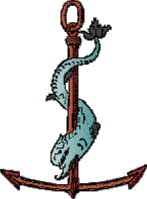The maturity of Sir Thomas Elyot
Like Cheke, Sir Thomas Elyot was a humanist; in his Book Called the Governor he attempted to show how those who rule should be educated so that they would rule wisely for the general good of the people.
At one stage Elyot was at a loss for a word to try to describe one of the ultimate aims of education, and he chose to use (to "usurp," he says) a Latin word which he thought his readers would find "strange and dark" in meaning-- and you will see how right he was to introduce it to the language. . .
. . .Wherefore I am constrained to usurp a Latin word, calling it "maturity": which word, though it be strange and dark, yet by declaring the virtue in a few more words, the name, once brought in custom, shall be facile to understand as other words late coming out of Italy and France, and made denizens among us.
A word "strange and dark"
Having decided to introduce the word "maturity" to the English language, Elyot explains what it means:
Maturity is a mean between two extremities, wherein nothing lacketh or exceedeth, and is in such estate that it may neither increase nor [di]minish without losing the denomination of maturity. The Greeks in a proverb do express it properly in two words, which I can none otherwise interpret in English, but "speed thee slowly " . . .
Maturum in Latin may be interpreted 'ripe' or 'ready,' as fruit when it is ripe, it is at the very point to be gathered and eaten. . . Therefore that word 'maturity' is translated to the acts of man, that when they be done with such moderation that nothing in the doing may be seen superfluous or indigent [skimpy], we may say that they be 'maturely' done. . . And this do I now remember for the necessary augmentation of our language.
Footnotes
-
Anchor and eel: "speed thee slowly"
The emblem of an eel entwined about an anchor was a common one to illustrate the quality of maturity being able to balance the need for expedient action with adequate reflection. The motto in the original Italian is festina lente: "speed thee slowly."
The eel signifies speed, the anchor stability. The seeming paradox of cautious speed is typical of the Renaissance love of seeing unity in diversity.
